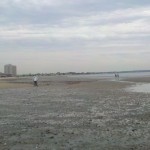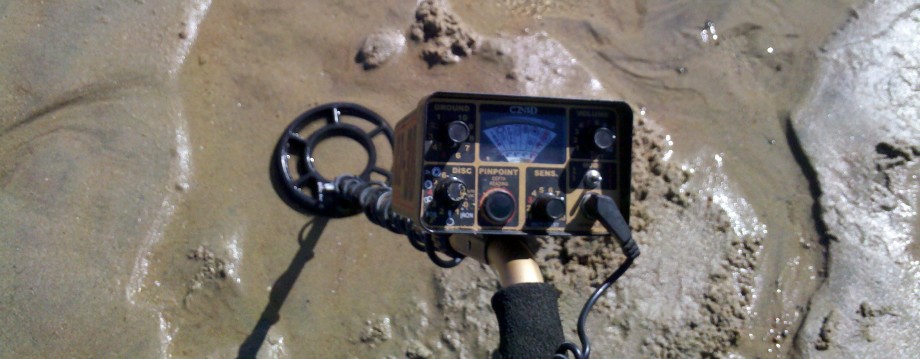
Beach Metal Detecting
Imagine the treasure that can be found on a saltwater beach. Imagine not only the jewelry and coins that people lose, but the ship wrecks from the past, or other historical items that have washed ashore only to be buried in the sand again. I'll give you a few tips on beach metal detecting and what equipment you will need.
After you have read this post check this link for great "how to" guide on beach metal detecting; Click Here!
One thing important to know before you begin beach metal detecting is that not all metal detectors are good for wet sand or the water. If you want to hunt the saltwater wet sand you will need a multi-frequency or P.I. (Pulse Induction) metal detector in order to do so effectively, and that is also true for in the water detecting.
You will also want to make sure to see if metal detecting is allowed on the beach you want to detect. Some private beaches are completely off-limits to metal detecting but others might allow beach metal detecting during certain hours or time of the year, usually when it is not very populated.
When saltwater beach metal detecting, I have a few recommendations for the time and location to do it. 1st is to become familiar with the Tide Charts, know when the low-tide is and if you are going to hunt in the water’s edge, you’ll want to know if it is a negative tide, which is usually during the New or Full Moon phase.
During the negative tide, which can be between 1 – 2 feet lower than a usual tide, a lot more wet sand area opens up having a potential for more unsearched area and more targets. This can be a very rewarding time and area to metal detect.
You can find a tide for your location here at, http://www.usharbors.com/
Some things to consider when heading out for a beach metal detecting session are:
- Was there a storm recently that disrupted the beach?
Usually after a coastal storm, new targets are uncovered and older targets will also appear. I recommend searching the midline between high and low-tide after a big storm, also look for newly exposed rocky areas.
- Is the tide going out?
If you desire to detect the wet sand and low-tide water line, you will want to go on an outgoing or low tide but if you are hunting the dry sand, then tide won’t really matter.
- What area of the beach attracts the most people?
Drive by and take a look when the beach is really busy to see where the people congregate. Is there a certain area where they enter the water, is there a bathhouse with lots of traffic, or concession stand, etc? Those will be good locations for beach metal detecting.
- Are there “cut-outs” in the sand where water has worn an area more than another?
Look for areas where the sand is worn away or “cut-out” by the tide waters. (example)
Those are just a few tips on getting to the beach for a good day of beach metal detecting.
Other things to consider are what will you use to retrieve your targets? Now there are a few things to consider here, like will you dig in the water? If so you will definitely need a sand scoop of some kind and there are many types to choose from.
There are stainless steel, aluminum, heavy duty, medium to light, short or long scoops, plastic for dry sand, etc. I will provide a few links to quality sand scoops that you can choose from.
Some folks use a shovel while beach metal detecting and they can be quite successful however shovels are almost useless in the water. I have a few friends that use shovels in the wet or dry sand with no problem, but not the water. If you want to hunt a few feet into the water you’ll need a long handle scoop, a shovel will not work.
A shovel will be fine for use in the wet sand if you don’t want or can’t afford a sand scoop, some scoops can be costly, but worth it. I use a heavy duty stainless steel scoop and it can dig through anything with little effort.
I’ve seen some detectorists bring a hand tool, like a Lesche digger or garden trowel to the beach but I do not recommend it. You will have an impossible time digging in sand with a hand type digging tool.
You should also bring a pouch or something to hold your finds and you should also bring a plastic bag for any trash you might find.
Please check out my post on properly gridding and detecting a flat wide open beach by clicking here.
I hope you find these beach metal detecting tips helpful, now get out there and find that gold!
Happy Hunting



One Response to Beach Metal Detecting Tips